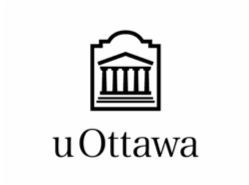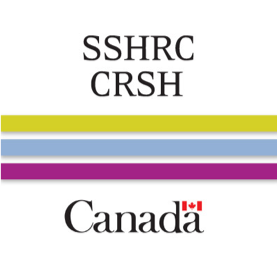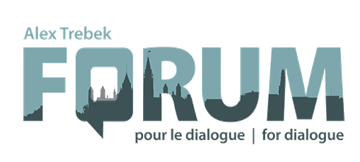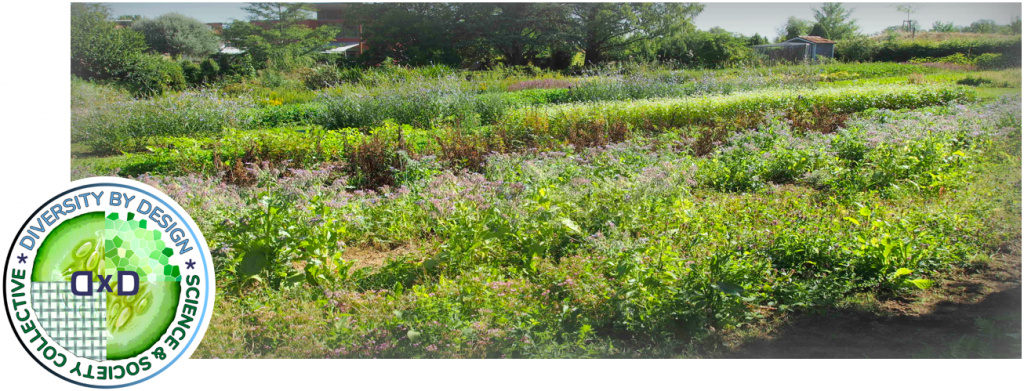
What is the Diversity by Design Project?
Diversity by Design is a social science research project that wants to better understand the usefulness of digital technologies for small- and medium-scale farmers, which includes market gardeners, organic farmers, regenerative farmers, and similar practitioners. We ask what digital tools are currently used, which ones may be of potential use that have not yet been developed, and what are concerns over the supposed digital ‘revolution’? For this work, we follow a practice-based and hands-on approach that starts from small- and medium-scale farmers’ experiences and reflections. Findings of this project will help inform policy analysts, policymakers and technology developers to craft more inclusive (policy) tools for a diverse agricultural system.
Farmers participating in the research project do not have to use digital tools. We would like to learn from small & medium scale farmers that want to exchange about potentials and limitations of digital tools in farming.
Why should we care?
Innovations in big data, artificial intelligence, sensor technologies or drones are often argued to address grand challenges, such as global food insecurity and climate change. Indeed, governments are making significant investments in the digital transition of agriculture. Despite promises that digitalization can make agriculture more sustainable, many agricultural digital tools raise challenges of their own. For instance, tools currently on market are often too expensive, and so only help some actors in the food system but not others. An unaddressed issue is also how agricultural technology intersects with other equality issues, including the experiences of women and BIPOC farmers, as well as claims to land/territory by Indigenous Peoples.
One of the goals of this research project is to examine if and how public investment in digital agriculture serves biodiverse forms of farming.
What do we do?
The project follows a participatory approach, and uses qualitative research methods in the form of design workshops, webinars, qualitative interviews, as well as farm visits. Through these various formats we aim to offer a space for engagement between farmers and technology developers, policymakers, and researchers. These engagements have the potential for various interest groups to better understand if, how, and what kind of (digital) technologies can best serve small-scale farmers in their agricultural practices.
Our design workshops aim to offer a space for engagement between farmers, technology developers and designers, policymakers and researchers to better understand if, how, and what kinds of (digital) technologies can best serve small- and medium-scale farmers.
Who can participate?
- Any farmers that practice market garderning, agroecological, organic, regenerative agriculture, and/or identify as a POC, Indigenous, queer or women farmer; you do not have to use digital tools to participate. Anyone interested to exchange about potentials as well as limitations of such tools is welcome to join.
- Technology developer or designer who have worked in agri-tech, or would like to apply their knowledge and skills to applications in agriculture and food production.
- Policymakers who work in agriculture or rural development, and would like to learn more about diverse farmers’ needs for machines, tools and technologies.
Ongoing Survey of Ontario/Québec Farmers
Part of this research includes an online survey of Ontario and Québec farmers of any size and type. Click here to download the survey information sheet. (Cliquez ici pour télécharger la fiche d’information en français). Participants can claim a $10 gas station gift card once they finish the survey.
Knowledge Mobilization with the Ontario Agri-Food Research Initiative
The Ontario Agri-food Research Initiative with the Ontario Ministry of Agriculture provided funding to mobilize the findings from Diversity by Design. See below for a plain language policy brief which summarizes findings from fieldwork and the online survey, the presentation to local farmer organizations and follow up, as well as links to short video stories featuring small-scale farmers and innovation.
Diversity by Design Project Brief
Diversity by Design Outreach Presentation
Diversity by Design Summary of Questions and Answers
Who We Are
Agriculture in Canada, or Turtle Island, often carries a settler colonial legacy, and researching diversity in farming includes questioning this legacy. We hope to do so by diversifying understandings and practices on these Indigenous lands, with the goal of more holistic forms of farming. The project is led by researchers at the University of Ottawa, which was built on Anishinàbeg territory. We also acknowledge that farming and food production occurs on (mostly) unceded territories of First Nations Peoples.
The Diversity by Design project is made up of a team of settler social science researchers with various backgrounds and extensive experiences in applied and analytical work on food and agriculture (below in alphabetic order).
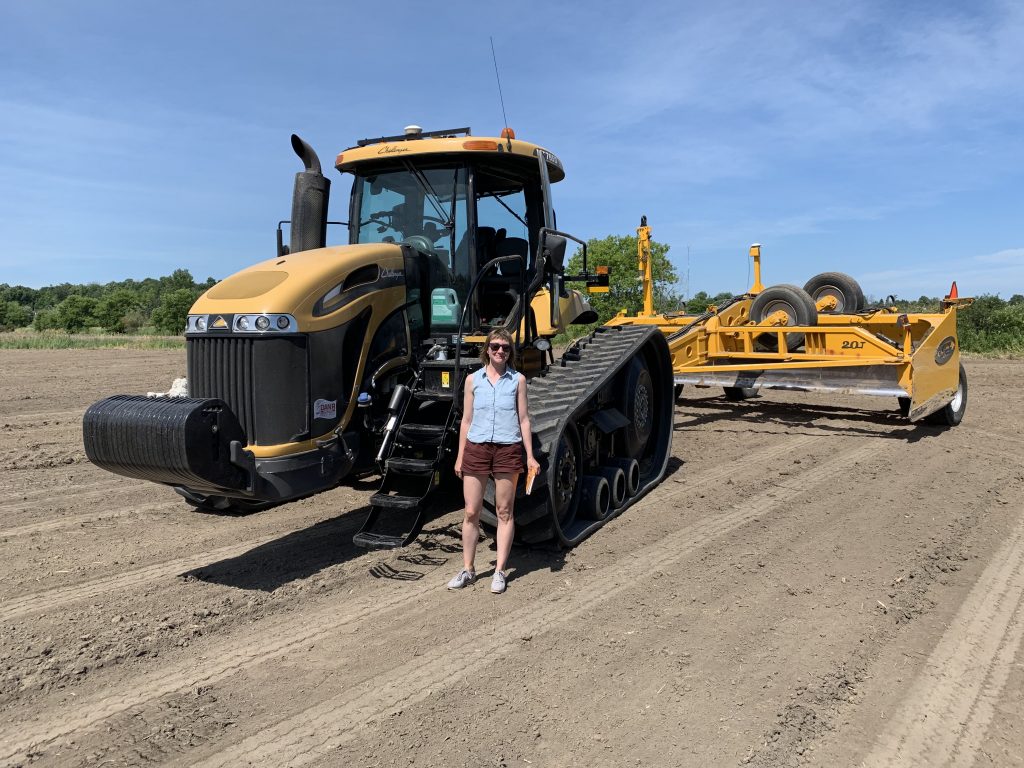
Kelly Bronson: Kelly is a Canada Research Chair (Tier II) in Science and Society at University of Ottawa in Canada. She is a social scientist studying and helping to mitigate science-society tensions that erupt around controversial technologies and their governance—from GMOs to big data. Her research aims to bring community values and non-technical knowledge into conversation with technical in the production of evidence-based decision-making. She has published her work in regional (Journal of New Brunswick Studies), national (Canadian Journal of Communication) and international journals (Journal of Responsible Innovation, Big Data and Society).
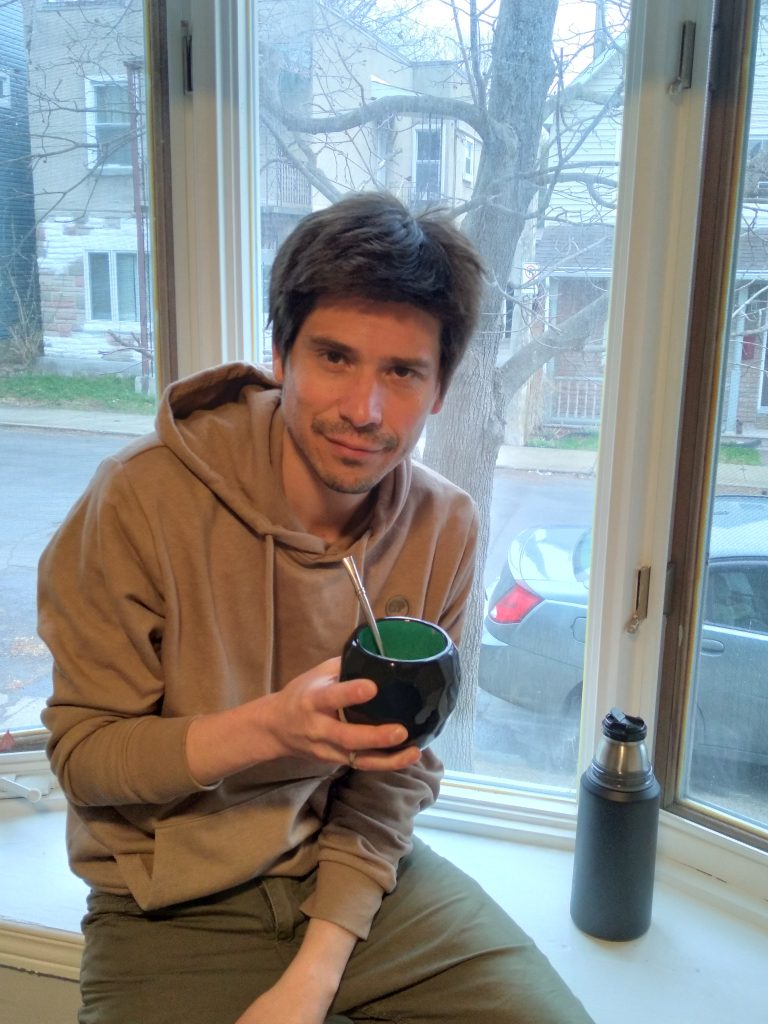
Cristian Maximiliano Cabrera Van Cauwlaert: Cristian will begin his PhD in Anthropology at the University of Ottawa in September 2022 under the supervision of Professor Vincent Mirza. His research focuses on the analysis of urban spaces transformed into third places (coworking, fablabs, community gardens, associations, etc.), which are likely to become the basis for the development of the post-industrial city, given the new social and productive dynamics that unfold there. As part of his master’s thesis in Anthropology, he conducted ethnographic work with the fablabs network in Peru that promote traditional handicrafts using digital manufacturing technologies.
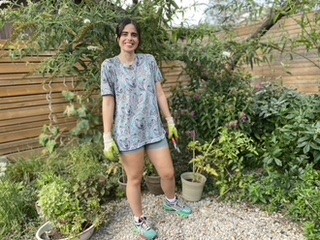
Olivia Doggett: Olivia is a designer and PhD student completing a cross-collaboration between University of Toronto’s Faculties of Information and Environment. Drawing from the disciplines of human computer interaction, social studies of science, information, and environmental studies, Olivia’s research considers how emerging agricultural technologies both value and devalue temporary farm labour in Canada. Through this research, Olivia aims to develop policy and design recommendations for sustainable and equitable assistive agritech that can support, augment and sustain farm labour in Canada.
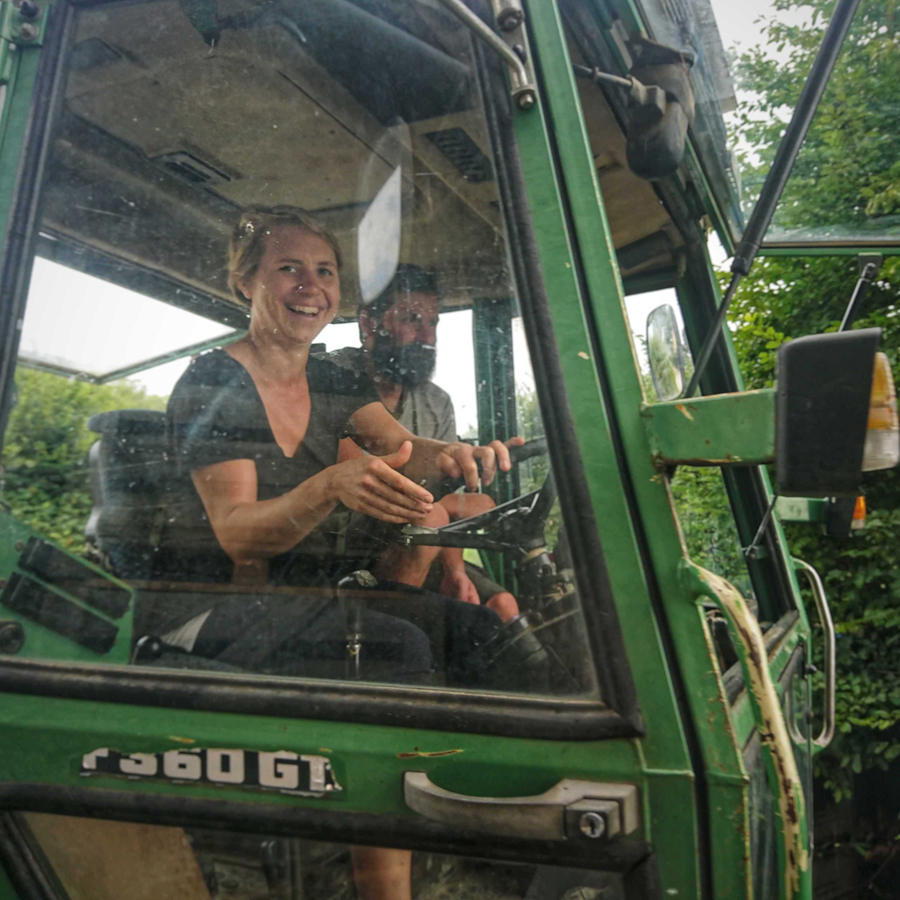
Dr. Mascha Gugganig: Mascha is an anthropologist who researches emergent, often contested technologies, including agricultural biotechnology on the settler colonial terrain of Hawai’i, indoor vertical farming, and digital agriculture in EU policy. Through her work she aims to foster dialogue on the differences and overlaps between “high-tech” and “(s)low-tech” in sustainable agriculture, both to understand what is at stake (economics, environmental, socio-cultural, political), and to develop practical, place-based approaches. Through arts-based research and communication methods, her work engages various interest groups, not least to highlight the need for a diversity of expertise.
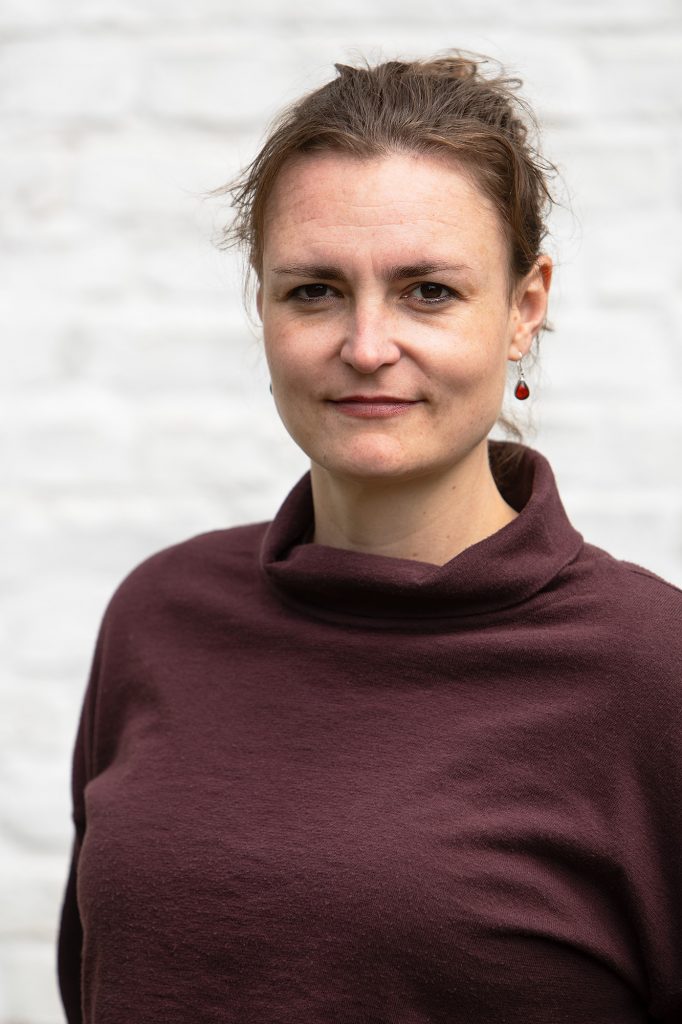
Dr. Sarah Hackfort: Sarah K. Hackfort is a political scientist based at the Humboldt University of Berlin in the Department of Agricultural and Food Policy, at the Faculty of Life Sciences.
Her research focuses on questions of sustainability; the valorization of data and nature in the high-tech bioeconomy; on new technologies and digitalization in food and agriculture and their political regulation; and related issues of power, inequalities, and democratization. In her research, she draws on critical policy and technology analysis, political economy, political ecology, and feminist theory.
In 2022, she became a research fellow for the Institute for Science, Society and Policy at the University of Ottawa, as well as an associated member of the Science & Society collective.
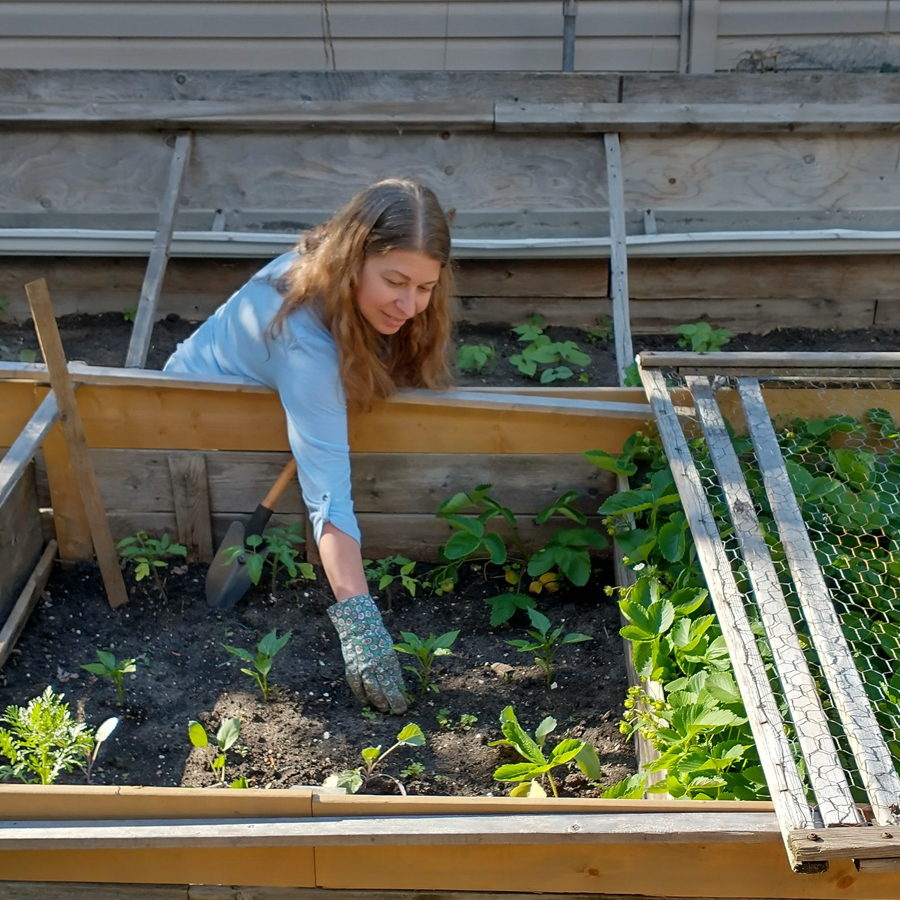
Dr. Irena Knezevic: Irena is an associate professor in the School of Journalism and Communication at Carleton University, and the director of CU Food and Media Hub. Her work spans a range of food systems inquiries, including community-based research, food policy, and digital technologies. She is the co-editor of Nourishing Communities: From Fractured Food Systems to Transformative Pathways (Springer, 2017) and has published her work in various journals, including Canadian Food Studies, Canadian Journal of Communication, Critical Policy Studies, Journal of Agriculture, Food Systems, and Community Development, and Food, Culture and Society.
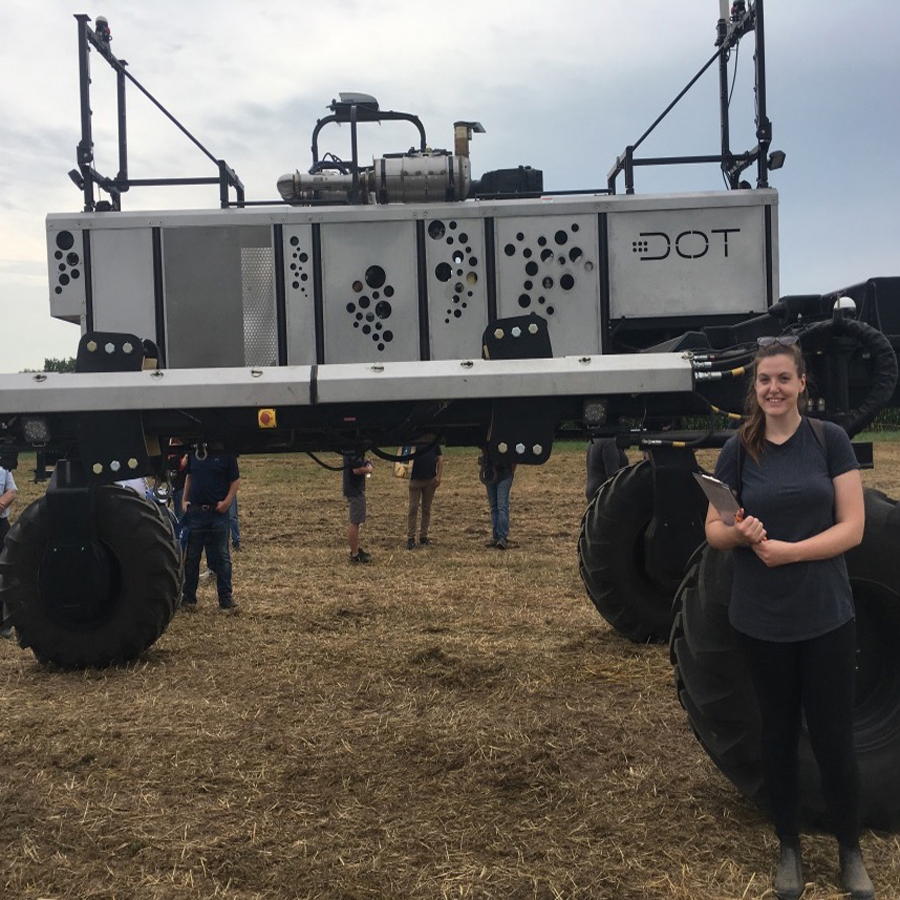
Sarah Marquis: Sarah began her PhD at the Institute of the Environment at uOttawa in September 2020 under the supervision of Dr. Kelly Bronson. She just finished her Master’s degree at the University of Guelph where she focused on technology use in agriculture. Her work focuses in particular on the impacts of ‘digital farming’ or ‘smart farming’ and how the emergence of agricultural Big Data is helping to reshape the politics and practices of farming. Her PhD research will continue to explore the social and environmental impacts of ag-tech in Canada, and she is particularly interested in the role of artificial intelligence in agriculture.
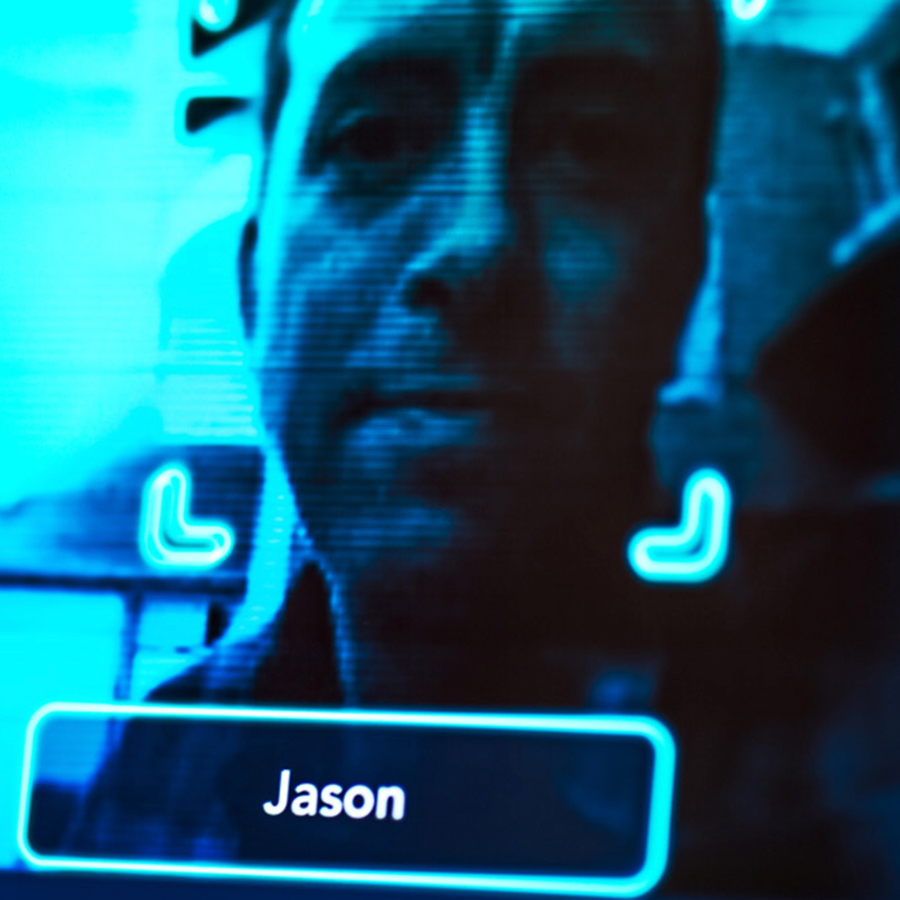
Dr. Jason Millar: Jason holds the Canada Research Chair in the Ethical Engineering of Robotics and AI, and is an Assistant Professor at the University of Ottawa’s School of Electrical Engineering and Computer Science with a cross-appointment in the Department of Philosophy. His research interests include developing tools and methodologies engineers can use to integrate ethical thinking into their daily engineering workflow, and has focused on applications in automated vehicles, natural language processing, healthcare robotics, social and military robotics.
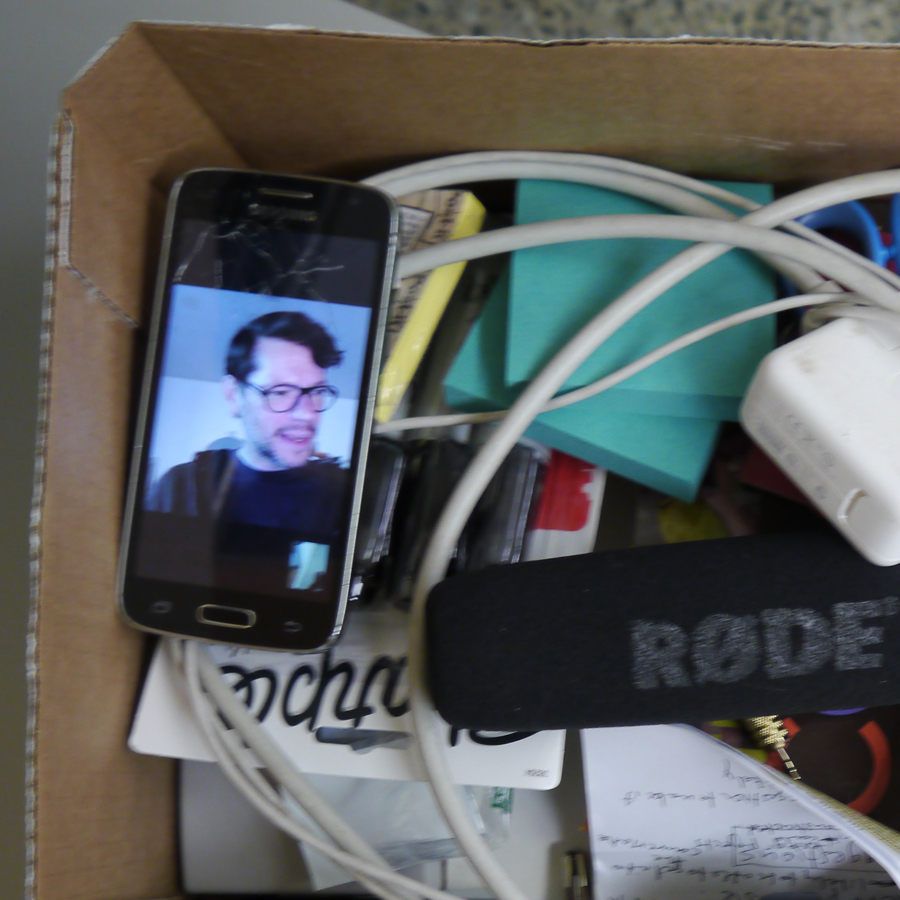
Dr. David Szanto: David is a teacher, consultant, and artist taking an experimental approach to food systems research. Past projects include meal performances, immersive sensory installations, and interventions involving food, microbes, and robots. David has taught at several universities in Canada and Europe and has written extensively on food, art, and performance. He is an associate editor of the open-access journal, Canadian Food Studies, and co-editor of the textbook, Food Studies: Matter, Meaning & Movement.
This project is funded by:
